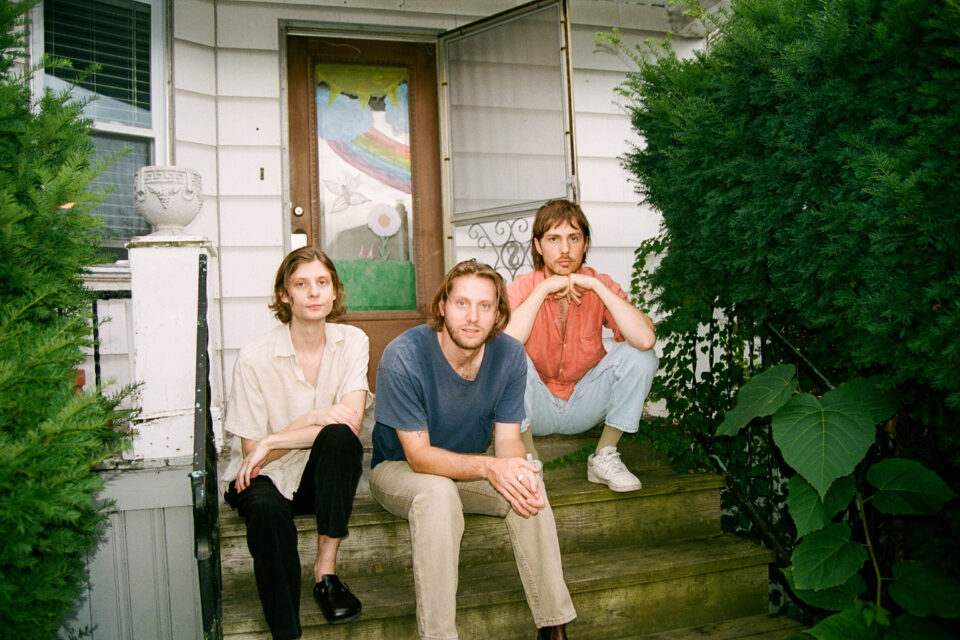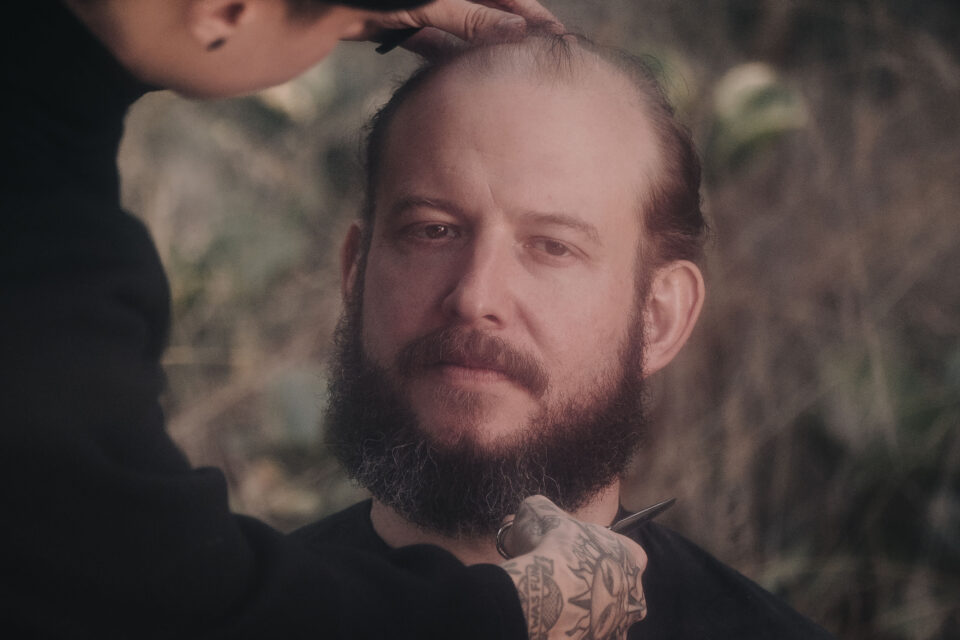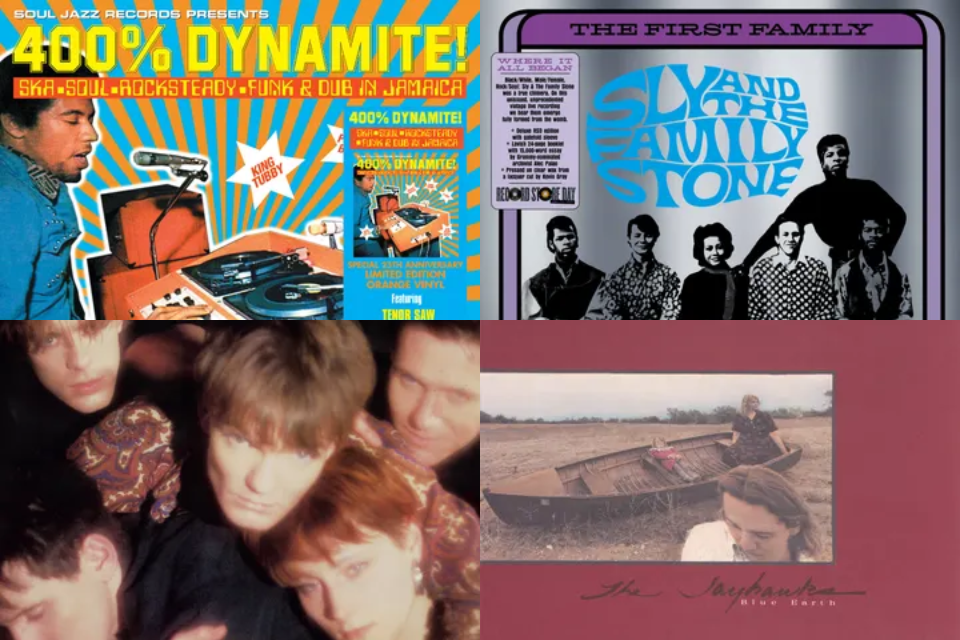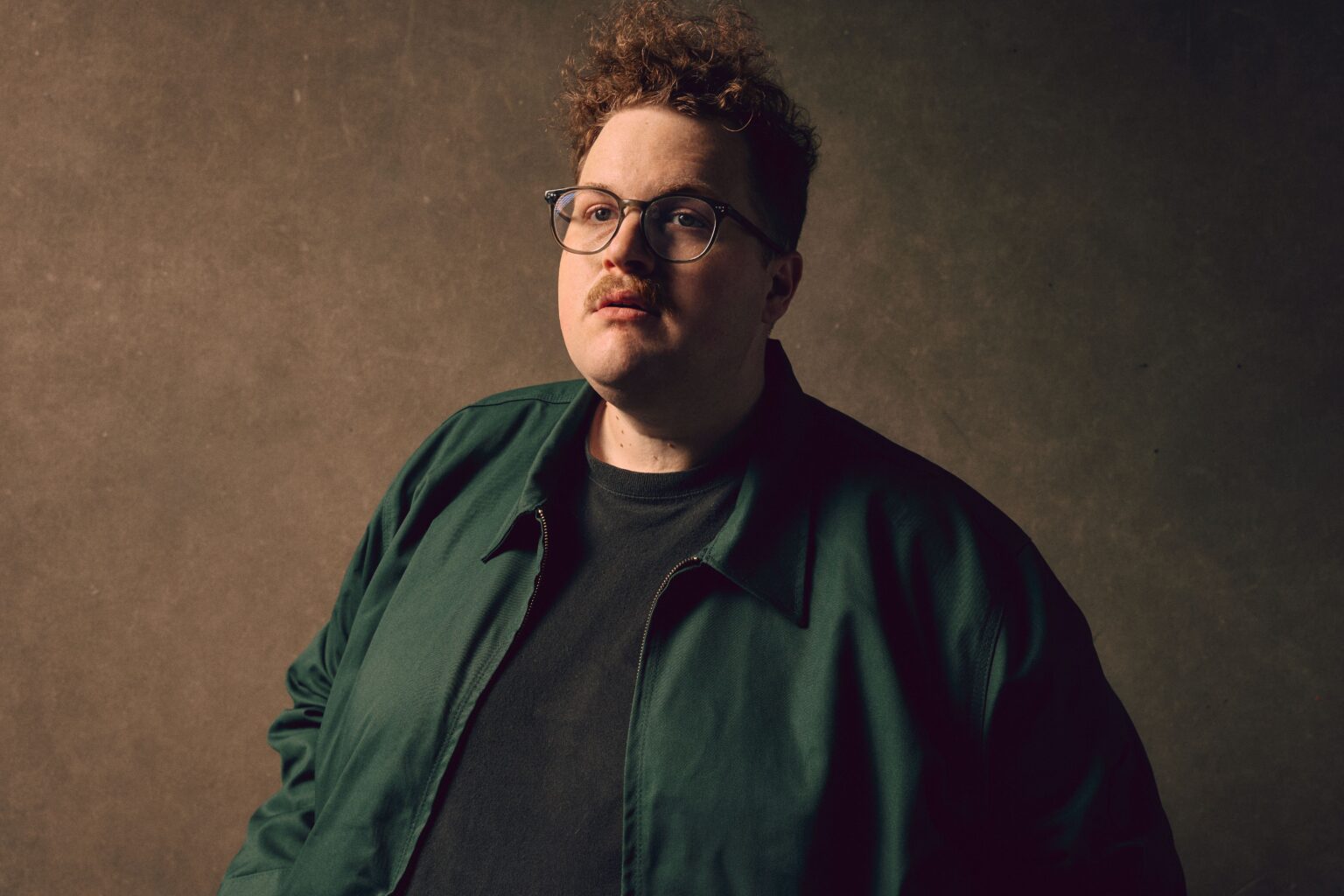Bonny Doon is a trio from Detroit. The group’s two vocalists and songwriters, Bill Lennox and Bobby Colombo, met in 2012 over a shared love of the band Silver Jews while flipping through CDs at a record store in Chicago.
“Every record I pulled up he’d be like, ‘Ohh!’ and then every one he pulled up I’d be like ‘OHH!'” said Lennox. “I’d never connected with anyone about music like that. We were soul mates.”
Colombo played bass for Lennox’s band for the first time at the band’s fated last show. The next day Colombo moved to New York City, the two kept in touch, and eventually formed Bonny Doon.
Pitchfork accurately described their first two albums as melodic alt-country. Writer Nina Corcoran said that Bonny Doon is “at once jagged and unfinished, languid and detail oriented, restless and at peace.” The band’s new record Let There Be Music is our Record of the Week. It’s a sunshiny record, dare I say breezy with its “ohh sha laa laa”s and “nah nah nah nah”s. It’s a cold beer on a hot day kind of record. It’s as comforting as a worn-in porch chair. And it’s an album that is decidedly happy.
“The light is bigger than the dark in our songwriting,” said Lennox. “This record ended up being overwhelmingly joyous and positive… I think it’s just coming to our final form and releasing what is natural to us.”
Letting it come naturally seems to be the key for Bonny Doon on Let There Be Music. It’s an album that sounds like a group of friends who are relaxed and comfortable in their identity as a band, which is why it is WNXP’s Record of the Week.
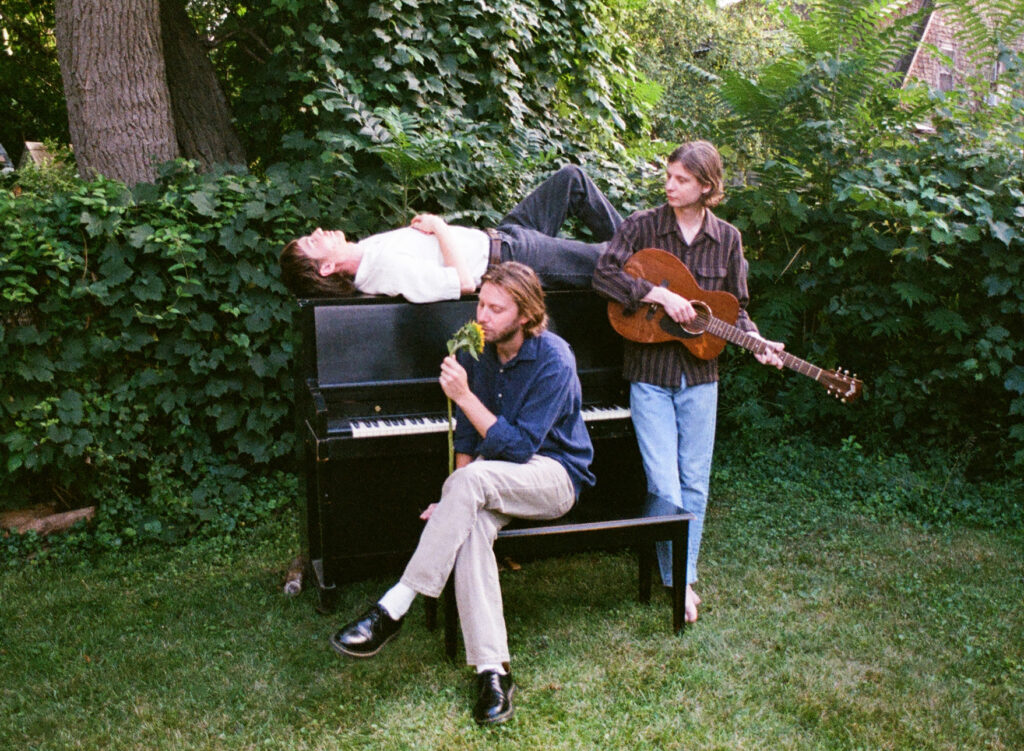
On The Record: A Q&A With Bonny Doon
Justin Barney: The album itself seems so perfect for a laid back summer day. Was that lightness intentional?
Bill Lennox: I don’t think that was necessarily like the overall intention. It’s definitely not premeditated. Ever since we started this band, that’s just what’s been coming out of us is sort of like, you know, the light is bigger than the dark in our songwriting. I think especially after “Longwave,” which was a little bit more moody. This record ended up being overwhelmingly joyous and positive.
JB: Why do you think that is?
BL: I mean, you know, I think some of it is just because we had so much time away from the band with like COVID and Bobby and Jake had chronic illnesses that they were dealing with. It was kind of a therapeutic reaction to everything that was going on. We just had to find some good in things and that’s what came out.
Not that it’s easier to go dark or something, but it’s more vulnerable to try to say the thing that is more fun and positive and happy. I feel like this album, it’s a little bit like us, really, like, you know, like being vulnerable and like actually kind of opening up kind of kind of. It’s almost like children’s music or something in a way where it’s, like, just overtly happy.
JB: And it’s not complete, which I think is important to like in the song “Let There Be Music” it’s “Let there be sadness, but only sometimes.” Let there be sadness is an important part of that.
BL: Exactly. That’s kind of sums it up for me.
JB: In “Naturally” you break out the white boy French. It hits so hard that you put nothing on it.
BL: I didn’t want to fake it too hard, you know?
JB: It would have been so bad if you would have faked it.
BL: I know. I know, exactly.
JB: It’s still it’s still a big swing to add the French. What was the thinking there?
BL: Part of it was that it was a big swing. Like, why not try it? You know, Talking Heads did it 30 years ago. We can try it. And also that song just has like a really simple message. And I just really love the chorus of that song. That was the first thing I wrote, and I felt like I didn’t really need to say more than the chorus. If it could just be that and everything else be instrumental, I would been happy. So I thought we should do something really out there that we wouldn’t ever think to do. And Bobby was just like, “Since we can’t think of a really great line here in the second verse. Let’s write a bunch of mediocre or simple lines and then translate them to French. And then we will see if any of them worlk syllabically or sound good. And it kind of kind of worked out.
JB: He was so right.
The album feels effortless which I know is soooooo hard to do. Are you intentionally not overthinking it? What’s the process?
BL: I feel like our whole thing since we started this band is just like, let’s just literally try to be authentic. Even when we were in punk bands and stuff before, we lived that life and that was our ethos. But you listen to what we’re doing now and it’s the opposite of playing hard, heavy music. So I think it’s just coming to our final form and releasing what is natural to us.
We’re not fakers. And I think that’s just what’s coming through.
JB: Being positive teeters on being corny though and people hate corny. How do you avoid that?
BL: I feel like The Velvet Underground or Lou Reed, like that’s it doesn’t get any cooler than that. You hear some of those songs and they’re just simple little fun, little songs. “Sweet Jane.” “Sunday Morning.”
He pulls it off so hard. So that’s a big that’s a big reference for us.
JB: What’s the story with the piano and its involvement in this band?
BL: We had done it before, but poorly and we wanted this record to be piano centric, so the piano is holding it down and a lot of songs. And for that we farmed out the playing to some of our friends. We got Michael Malus, is like a Detroit jazz pianist that Bobby has known for really long time. He plays on “Let There Be Music,” all through that big kind of solo extended section at the end. And John Andrews did a lot of the arrangements for the piano and Kyle Forester from Woods and some other band did some of it too.
JB: What is the titular famous piano in “Famous Piano?”
BL: That was just a working demo title that I put as a voice memo in my phone and we just never changed it. And we thought it was kind of funny. So that’s what it’s called still to this day.
JB: I thought it was like a reference to “Famous Blue Raincoat” or something
BL: Well it’s not about a piano in particular, it’s about the little piano melody. When I used to play it back in the day, I would be like, “This is my little famous piano lick that I do.” It was a bit. And then it turned into a whole song somehow.
JB: That’s a good bit. Just inferring that you do something that is famous.
BL: Yeah, it’s my favorite bit.
JB: Did you write San Francisco?
BL: Yes. A lot of the songs we kind of write together in one way or another.
JB: What was going on in your life when you were writing San Francisco?
JB: Um, you know, a lot. It was kind of it started a long time ago. I think it was like a first couple of lines or written like 2018, and 2019. I really just liked the, “I missed the San Francisco days, and some nights” I just thought I was kind of a cheeky, clever, funny line. And I was just like, “There’s a song here.” You know, I really liked the piano melody and it just kind of grew from that and. There’s bigger themes in the song. When Bobby and I were writing it he was living in California. I was going through a breakup.
JB: How do you and Bobby know each other?
BL: We met in 2012 doing a different band briefly. And then we were just like, “What are we doing? Let’s start our own band.” It was a it’s kind of a funny story. I was playing with these two people and we were playing a couple of shows in Chicago and we needed a bass player. I didn’t know Bobby, but the singer did. He called Bobby. Who said he’d come learn some songs and play bass with us. We go to Chicago, played a couple of shows, made me and Bobby really get along and off. I moved to New York literally the next day. So I knew that it was the end of that band, basically.
I moved with my friend Evan to New York, and then Bobby and I were sharing music through email and stuff. This was 2012. When I eventually move back the next year, we got a studio together. He was still kind of working on his solo album at the time. So I was kind of helping with that and doing my own thing. Then eventually we just like ended up collaborating so much that we were like, “Let’s f***ing start a band.” And it’s been ten years now. Wow.
JB: When you were first meeting him. What’s a memory that you have where he did something and you were like, “Yeah, this is my dude.”
BL: We were at a record store in Chicago called Sake. Achy. And we were just walking around and pulling up CDs in the CD section. And every CD that I pulled up, he’d be like, “Oh!” And then everyone he pulled I was like, “Oh!” And we realized that we had the exact same taste. Like, I pulled up like this random ass Silver Jews DVD. I was like, “Oh, have you seen this?” And he’s like, “Dude, that thing is so crazy.” And yeah, I had never connected with someone about something like, Silver Jews, for example. Back in 2012 when I didn’t know anybody else who was listening to that stuff. So we’re kind of soul mates.
JB: Okay last question. What is the last song you couldn’t stop listening to?
BL: I’m going to say The Lentils. Do you know that band from L.A.?
JB: Nope.
BL: Yeah, The Lentils. The song is called “Sunday’s Jammers.”
JB: What’s The Lentils’ vibe?
BL: They’re just like this kind of really DIY pop, but also punk, and they use a lot of like horns and strings and really interesting production. Amazing lyrics. He used to have a band called Happy Jawbone Family Band from New England. That was really sick and I really used to like them back in, like, the late aughts.
BL: And now this is his new band, The Lentils. They’re so good.
Bonny Doon is coming to Nashville, playing at Basement East on November 11.

